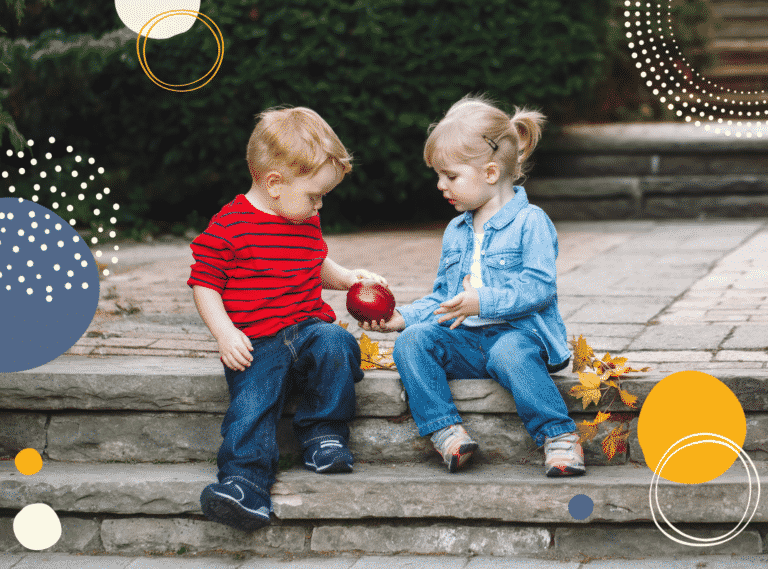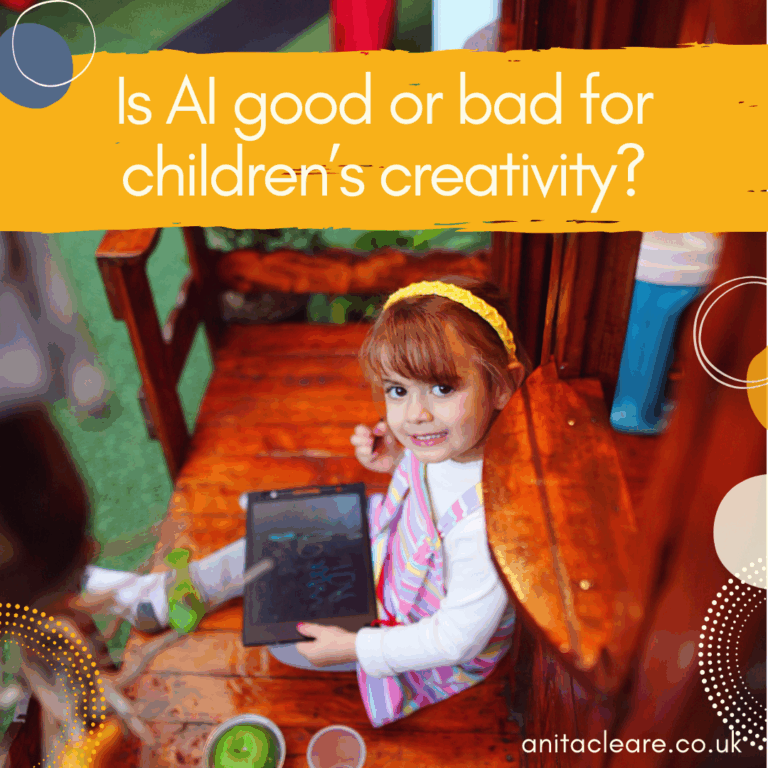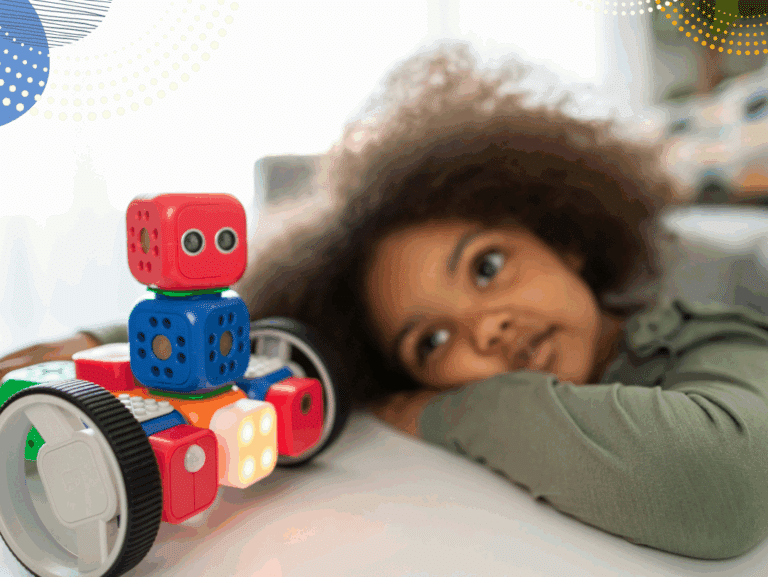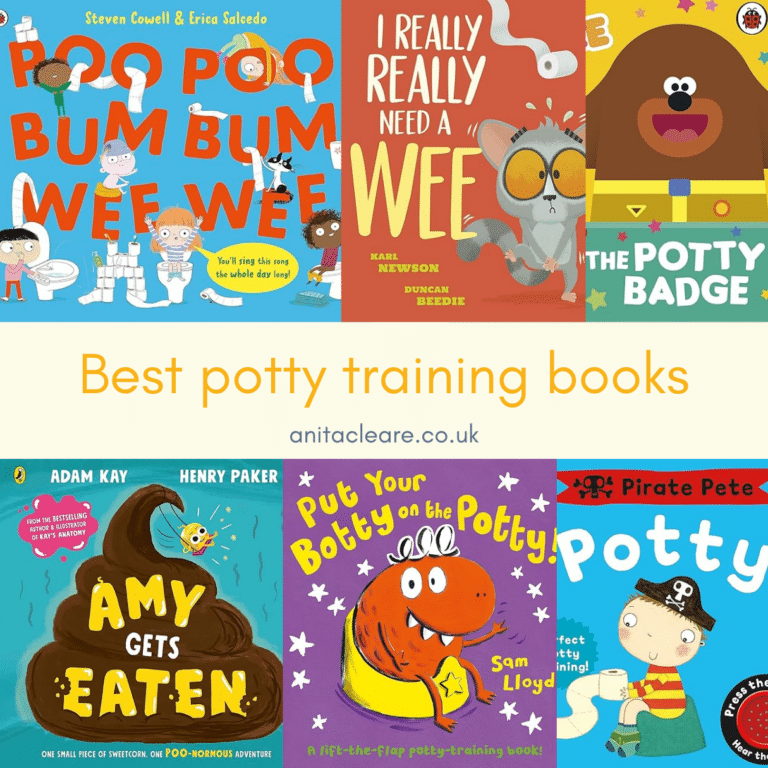Helping young children make friends
Helping young children make friends involves some thoughtful conversations and as many opportunities for learning and practice as possible. Here are some practical tips for parents of little ones to help you build your child’s social skills, overcome any anxiety and build positive friendships.
Build turn-taking skills
You can help young children learn to take turns by playing lots of games that involve turn-taking at home (see Teaching children to share). Model social vocabulary while you play with them by using phrases like “Shall we…?” and “Would you like to…?” You can also equip young children with some conflict reduction tools by teaching them phrases like “Please can I have a turn?” Remember to positively reinforce when they get it right with lots of praise and smiles!
Build emotional awareness
Helping children recognise emotions (in themselves and others) is a key component in helping young children make friends and developing good social skills. A lovely way to do this is through books. When you are reading a book together with your child, draw their attention to the characters’ faces and ask “How do you think that character is feeling? Are they happy? Are they angry?” By introducing the idea that people have thoughts and feelings going on inside them that we can read through their external words, actions and facial expressions, you can help build your child’s emotional literacy and Theory of Mind.
You can use any book for this – but you might find these Books to teach children social skills especially helpful. We also have a great free video demonstration on how you can use story time to talk about thoughts and feelings with young children.
Talk about friendship
Books are also a great way to start conversations about friendships and being kind (see Raising Kind Kids). Use questions like, “What makes a good friend? How do they make you feel? What do they do that shows you they are a good friend? What don’t they do?” You can also try some role play here, if that’s something you enjoy!
If your child is struggling with one of their friends, try not to jump straight in and tell them what to do (see Tips for helping children with friendship problems). Spend a bit of time exploring why their friend might be acting that way and help your child come up with ideas for what they could do that might make the situation better (see Books for helping children manage friendship problems).
Provide opportunities to practise
Helping young children make friends is all about practice. They can’t learn social skills in theory: they need to spend lots of time with other children. Make sure your little one gets as many experiences as possible mixing with other children in groups and one-to-one. That might be at the park with children they don’t know or in a group activity with children they have met before.
Lots of peer group play will give your child the chance to learn sharing, imaginative play, communication and negotiation skills. Play dates are a great way to help children deepen these relationships into friendships (see Top tips for stress-free play dates).
And remember, learning through practise means that children will sometimes get it wrong. That’s OK. You don’t always need to intervene at every minor bump. Do keep an eye on them to head off any major altercations, but having the opportunity to manage disagreements and practise negotiating (or repairing if things have gone a little wrong) is great learning.
It’s OK for them to be them
Every child is born with a their own temperament and predispositions. Watch a group of five-year-olds and each one will take a slightly different social strategy in a group situation. One child might leap in and take control of the play and be the leader. While another child might hang back and watch first before pairing off with a single play mate. That’s OK – there is no ‘right’ way. It might seem like the first child is more confident but it doesn’t necessarily mean they have better social skills. (Often the leaders have to learn to ‘read the room’ better in order to play successfully!).
There is nothing wrong with hanging back a little first to observe what’s going on or being the child who facilitates good group dynamics by adapting rather than insisting. As long as your child is happy and learning and developing and getting lots of opportunities to practise and extend those social skills. It’s not the number of friends your child has that’s important – having a couple of good, trusted friends is far more important than being the most popular kid.
Overcoming anxiety
If your child is anxious about social situations, don’t be tempted to keep them at home or just let them stay away. Avoidance tends to make anxiety worse (many of us became more socially anxious after lockdowns and social distancing). Work with your child to identify small brave steps they can take. That might be doing a play date at home rather than going to someone else’s house or keeping things short. Or arranging to meet a trusted friend at the park or in a new situation where there will be unfamiliar children present.
If your child is neurodiverse (eg with ASD or ADHD) or very anxious, they might need help with some words or phrases they can use to join in play and some coping strategies for managing difficult situations. Helping young children make friends is all about starting where they are and helping them with the next little step – so spending some time observing them playing can be really helpful!
(See here for information on our specialised online parenting course and coaching options for parents of children with anxiety).






